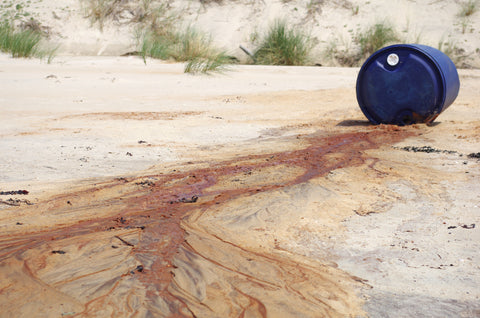
While most households get their drinking water from municipal water facilities, others get their water from private wells. Private wells are generally not regulated or monitored by anyone other than the property owners themselves. For this reason, well owners should know the common causes of well pollution.
One of the most common causes of private well water contamination is the household septic tank. Septic tanks are designed with a “leach field” around them. This is usually an area where wastewater flows out of the tank and is absorbed into the soil. This wastewater can also migrate into the well water.
Bacteria and nitrates are pollutants found in both human and animal wastes. While septic tanks can cause contamination into the well water, so can having large numbers of animals living or grazing near the well. Children are at extra risk when exposed to water-born bacteria. Some adults, those who are elderly or have weakened immune systems, are also at greater risk. Fertilizers can add to nitrate levels in groundwater and are known to cause the syndrome called “blue babies”.
Heavy metals can also find their way into the groundwater and pollute private wells. High levels of certain heavy metals can cause health problems.
Industrial discharges and waste material is also known to leach into the soil and make their way into groundwater sources. The type of pollutants discharged will vary depending on the industry. Some of these discharges can be very harmful to humans if ingested via drinking water.
Leaking underground tanks as well as leaking pipes can cause private well contamination. Again, depending on the type of discharge coming out of the tank or pipe, health problems can arise. Some common types of pollutants include petroleum products, industrial chemicals, and wastes. Steel tanks and piping are known to corrode with age thus resulting in leaks.
Modern landfills are now built and designed to contain leaking liquids, but during heavy rains or flooding, pollutants can leak into the soil and into the groundwater.
Lastly, household wastes when improperly disposed of can pollute private wells. Some of the most common products include motor oil, cleaning solvents, paint, and soaps and detergents.
To protect against these problems, private well owners should consider installing a high-quality water filter system. In addition to water filtering, owners should also consider routine testing of the well water.

